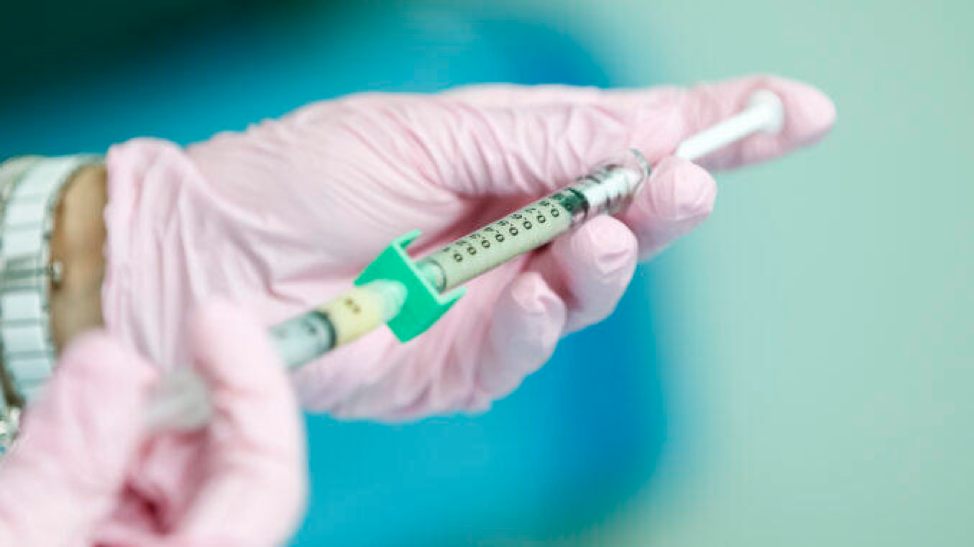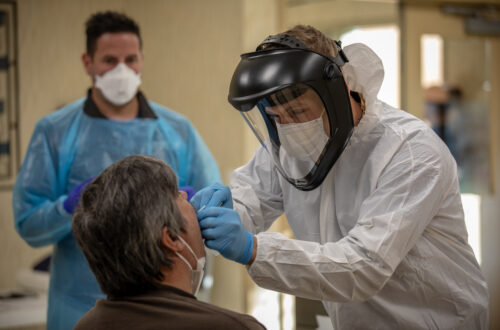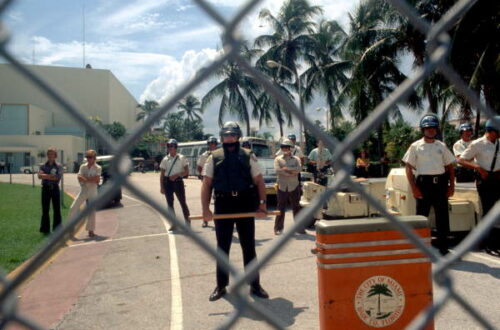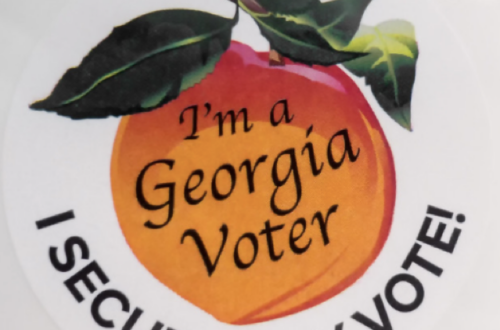COVID-19 vaccine distribution decisions lay in the hands of the states. Gov. Ron DeSantis is likely to have the final say on distribution in Florida, despite CDC recommendations that conflict with DeSantis’s plan to prioritize allocation to long-term care facilities.
Florida’s Oct. 23 draft of a vaccination plan detailed frontline health workers, first responders, LTC facilities and individuals 65 years of age and older as the first groups to receive the COVID-19 vaccine upon availability.
In a Dec. 1 meeting, the CDC advisory panel known as the Advisory Committee on Immunization Practices voted 13-1 to include the following groups in phase 1a of the COVID-19 vaccination program: “1) health care personnel and 2) residents of long-term care facilities.”
According to the Kaiser Family Foundation, COVID-19 claimed over 100,000 lives of LTC facility residents and staff by the end of November. Deaths in LTC facilities equate to 40% of COVID-19- related deaths nationwide.
Allocation of available vaccines to these facilities is vital, further exemplified by the ACIP’s majority vote on the aforementioned recommendation.
The lone vote against the ACIP’s guidelines came from Helen Talbot, associate professor of medicine at Vanderbilt University. Her vote against the guidelines was based on her personal studies on vaccinations in the elderly population, and her opinion that there is not enough data to prove its safety.
There is a reporting system established in partnership with the Florida Poison Information Center Network for any adverse reactions to the vaccine. However, Talbot is not confident that the “safety network was strong enough for long-term care facilities.”
Despite one member’s disapproval, the ACIP’s guidelines are intended to shape state policy. DeSantis’s office released a pre-recorded message exemplifying his intent to prioritize LTC residents before frontline health care workers in regard to the vaccine.
“Our top priority will be our residents of our LTC facilities,” DeSantis said.
In his message, DeSantis added that more than 3,000 of over 4,000 LTC facilities throughout the state have signed up for the vaccination process. Partnerships with CVS and Walgreens through Operation Warp Speed will assist the deployment of vaccination doses to these LTC facilities.
The federal government arranged for LTC facilities to register and partner with CVS and Walgreens to operate clinics to administer the COVID-19 vaccination.
By the end of December, initial doses of the vaccine are estimated to be around 40 million. This supply equates to vaccinating roughly 20 million Americans as each individual must receive two doses. DeSantis expects the state to receive between one and two million doses just this month.
In a Dec. 10 meeting, the FDA’s vaccine advisory panel formally recommended the FDA to approve the Pfizer-BioNTech COVID-19 vaccine for emergency use. As a result, the FDA authorized its use on Dec. 11, giving nursing home residents and health care workers the opportunity to receive shots the following week.
Additionally, the FDA issued emergency use authorization for the Moderna COVID-19 vaccine, the second vaccine for coronavirus prevention.
As vaccines have arrived in Florida, they have made their way to hospitals like Tampa General. By the end of the week, Florida will have 179,000 doses. Next week, Florida will receive 365,000 doses of the Moderna vaccine, according to DeSantis.
Within the next three weeks, there could be between 700,000 and one million doses of the vaccine available in the state. The state was expecting 205,000 doses shipped the week of Dec. 21 with 247,000 more the following week.
With the vaccine approved for use, vaccine prioritization to either LTC facilities or frontline health workers comes to a matter of intent. “If your goal is to maximize the preservation of human life, then you would bias the vaccine toward older Americans,” said former FDA commissioner Dr. Scott Gottlieb. “If your goal is to reduce the rate of infection, then you would prioritize essential workers.”
However, the term essential workers is clouded by the CDC definition that includes 70% of the American workforce, ranging from emergency responders to grocery store clerks.
In a meeting last month, voting members of the ACIP supported vaccinating essential workers during phase 1b, before people age 65 and older and those with high-risk health conditions. Phase 1a’s goal remains vaccinating LTC facility residents and frontline health care workers.
The recommendations from the ACIP provide a framework for states such as Florida, but the final decisions rest in the power of the states and their governors. DeSantis will have the final say for Florida’s allocation of the vaccine. As of now, he prioritizes residents and workers within LTC facilities for phase 1a.
Featured image: A medical professional prepares a vaccine. Unmodified photo by Abel F. Ross used under a Creative Commons license. (https://bit.ly/3mB8CLS)
Check out other recent articles from the Florida Political Review here.





